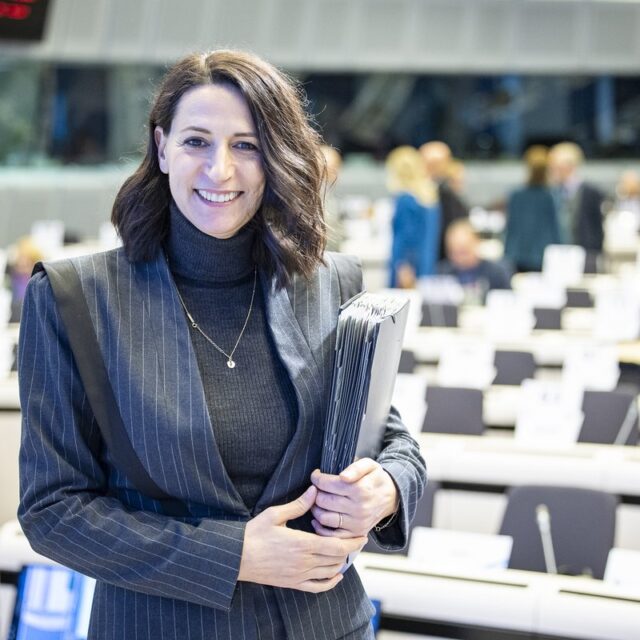Sadly, the COVID-19 pandemic has been exploited to undermine democracies across the globe, with governments using this occasion to silence critics, enhance state surveillance and tighten their political grip while taking advantage of the state of emergency to arrest protestors.
The EU neighbourhood is no exception to this tendency. Even in countries, such as Armenia, where initial optimism on “revolutionising” the political system has reigned since the change of government in 2018, a democratic backsliding has become obvious.
Facing criticism over bad management of the COVID-19 outbreak and the ensuing economic crisis, Armenian Prime Minister Nikol Pashinyan first resorted to a drastic change in power structures in the country’s security services with the replacement of the Chief of the General Staff, the Head of Police and the Director of the National Security Service on 8 June.
To the surprise of many, the 29-year Argishti Kyaramyan became the new security chief in a move described as a “political appointment” based on loyalty rather than competence. Notably, Kyaramyan’s lack of experience in security services and his speedy promotions, including to the rank of colonel, came under fire.

While referring to a wedding party in breach of lockdown measures as a possible reason for the dismissal of the former Chief of the General Staff Artak Davtyan, Pashinyan did not provide any explanation for the replacement of the two other top-ranking security officials, Arman Sargsyan and Eduard Martirosyan.
These developments were followed by the detention of Armenia’s main opposition party leader Gagik Tsarukyan on July 14, who had earlier called for the government’s resignation. In parallel, some 250 pro-opposition protestors were also detained for disobeying emergency rules. While Tsarukyan’s credentials may not be impeccable, the timing of his indictment and investigation has been widely seen as having a political motive. After all, the wealthy businessman has some political cloud, having played a major role in organising snap elections in 2018, which brought Pashinyan into power.
By targeting the only alternative political force, enjoying genuine public support and having the ability to unite the opposition parties, Pashinyan’s actions would risk eliminating plurality while consolidating the one-party rule in the country.
The Armenian government has extended the state of emergency until July 13 amid criticism regarding its bad management of the health crisis, including late closure of borders, overwhelming of hospitals, early lifting of the lockdown despite increasing cases, and censorship on reporting about the outbreak. In particular, Reporters Without Borders condemned the government’s attempt to “obstruct their work and their right to information”.

Pashinyan even went so far as to suggest disinfecting the virus with “homemade vodka” at the outset of the pandemic. The country is now the regional leader in per capita infections, counting 29,820 cases and 521 deaths for a population of 3 million. After testing positive for coronavirus on June 1, Pashinyan admitted to the failure of the government to enforce containment measures.
The economy also took its toll with the World Bank forecasting a 2.8% contraction and Fitch downgrading the country’s credit rating to BB- with a negative outlook. At the same time, international watchdog Human Rights Watch raised concern over “very broad surveillance powers” of the Armenian authorities, which passed amendments restricting the right to privacy and allowing access to sensitive data in late March.
Pashinyan’s current efforts aimed at achieving a judicial reform are also seen by many commentators as a means of politicising the justice system by removing judges who have opposed him. In a session boycotted by opposition parties on June 22, the government passed a constitutional amendment, which could lead to the discharge of a number of judges of Armenia’s Constitutional Court and the replacement of the court chair.
The Council of Europe’s Venice Commission, however, called for a gradual rather than immediate removal of judges and court chair due to the current composition of the parliament overwhelmingly dominated by the ruling party. Moreover, contrary to the government’s earlier promises, these amendments were not backed by a referendum, which was postponed to a later stage due to the pandemic.
Given these circumstances, pushing ahead with the judicial overhaul could actually undermine the rule of law and the independence of courts while eliminating democratic checks and balances.
Such attempts to interfere with the independence of the judiciary and to silence dissent while tightening the power grip and curtailing civil liberties has nothing to do with improving public health and meeting citizen’s expectations. In fact, they constitute a huge impediment to a healthy democracy.
The EU should be vigilant to these alarming developments in its neighbourhood while increasing its efforts to ensure greater respect for its fundamental values and freedoms, in the absence of which it cannot achieve “strategic, ambitious, flexible and inclusive” relations with its Eastern neighbours, as stated in the EU Council conclusions of May 2020.
This article first appeared in New Europe on 15th July




